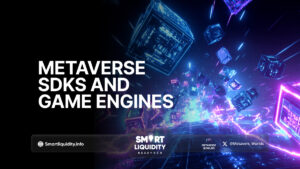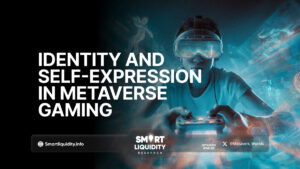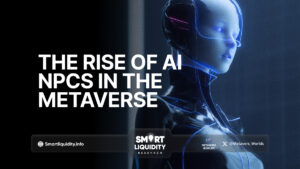How Blockchain is Influencing the Gaming Industry in Metaverse


The convergence of blockchain technology and the gaming industry within the metaverse is transforming digital experiences and creating new opportunities for gamers and developers alike.
This fusion is reshaping traditional gaming paradigms, offering decentralized, secure, and transparent environments that foster innovation and enhance user engagement.
Decentralization and Ownership
One of the core advantages blockchain brings to the gaming industry in the metaverse is decentralization. By leveraging decentralized networks, blockchain technology eliminates the need for intermediaries, granting players true ownership of in-game assets. Gamers can buy, sell, and trade items such as weapons, skins, and virtual real estate across different platforms, enhancing the user experience and providing unprecedented flexibility.
Security and Transparency
Blockchain’s inherent security features are crucial for the gaming industry. The technology’s cryptographic nature ensures that all transactions are secure and transparent, mitigating the risk of fraud and hacking. This is particularly significant in the metaverse, where real economic value is often at stake. Blockchain guarantees that in-game transactions, ownership records, and asset transfers are tamper-proof, fostering trust among users.
Play-to-Earn Models
The introduction of play-to-earn (P2E) models is a game-changer enabled by blockchain. In these models, players can earn real-world value through their in-game activities. Blockchain facilitates the creation of unique, scarce digital assets, often represented as non-fungible tokens (NFTs), which players can monetize. This shift not only incentivizes players but also introduces new revenue streams for developers, enhancing the overall ecosystem.
Notable Projects in Blockchain Gaming
Several pioneering projects exemplify the impact of blockchain on gaming in the metaverse:
- Axie Infinity: This game allows players to collect, breed, and battle fantasy creatures called Axies. Players earn tokens, which can be exchanged for real-world currency, making it a prime example of the play-to-earn model.
- Decentraland: A virtual world where users can buy, sell, and build on virtual land parcels using the MANA cryptocurrency. Decentraland exemplifies how blockchain enables true ownership and economic activity in virtual spaces.
- The Sandbox: A decentralized gaming platform where players can create, own, and monetize their gaming experiences. By using the SAND token, players and creators can participate in the ecosystem’s economy, further demonstrating blockchain’s potential.
Interoperability and Cross-Platform Play
Blockchain promotes interoperability, allowing for cross-platform play and the seamless transfer of assets between different games and virtual worlds. This is a significant departure from traditional gaming, where assets and currencies are often confined to individual games. Interoperability enhances the metaverse experience by creating a cohesive digital universe where players can explore, trade, and interact without boundaries.
Community and Governance
Decentralized autonomous organizations (DAOs) are another innovative application of blockchain in gaming. DAOs enable players to participate in the governance and decision-making processes of their favorite games. This level of community involvement is unprecedented and ensures that games evolve in ways that align with the players’ interests and preferences. By giving players a voice, blockchain strengthens the bond between developers and their audience.
Conclusion
In summary, blockchain technology is revolutionizing the gaming industry within the metaverse by introducing decentralization, security, and transparency. It enables play-to-earn models, fosters interoperability, and empowers communities through DAOs. As this technology continues to evolve, it will undoubtedly pave the way for more innovative and immersive gaming experiences, transforming the metaverse into a dynamic and user-centric digital realm.
DISCLAIMER:
“The information provided on this platform is for general informational purposes only. All information on the platform is provided in good faith; however, we make no representation or warranty of any kind, express or implied, regarding the accuracy, adequacy, validity, reliability, availability, or completeness of any information on the platform.”




